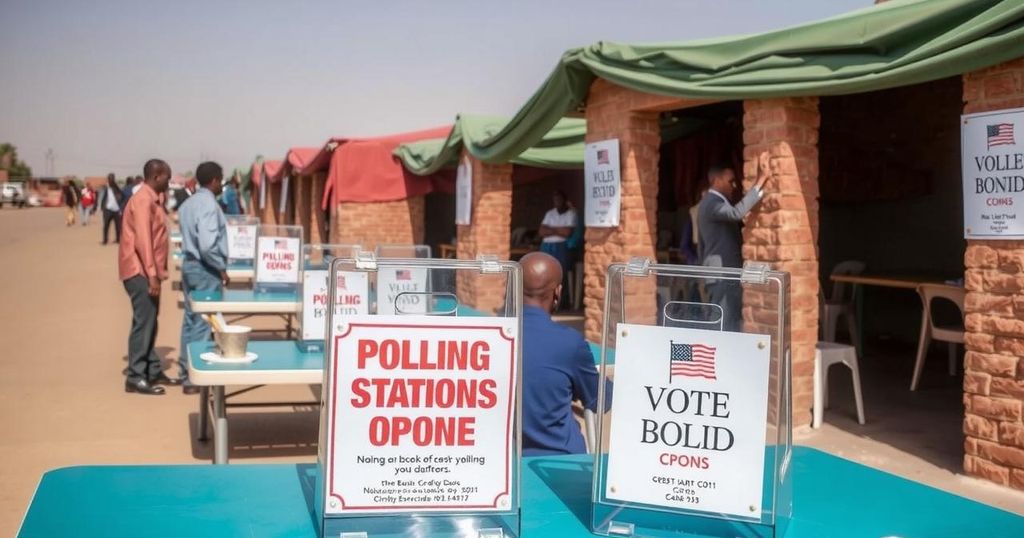Chad Elections Under Opposition Boycott Amid Public Discontent

Voting has begun in Chad’s general elections amidst an opposition-led boycott, which frames the elections as a misguided effort to maintain the ruling party’s power. Many citizens express indifference towards the elections and concerns about the electoral process’s legitimacy. As the ruling party faces allegations of electoral bias, the national mood remains skeptical, with citizens focusing on pressing economic issues.
Voting has commenced in Chad amid calls for a boycott by opposition parties who characterize the elections as superficial attempts to consolidate the ruling party’s dominance. President Mahamat Idriss Deby Itno has declared the elections a crucial step towards democracy, despite widespread opposition dissent. While members of the armed forces have already cast their ballots, most citizens will vote for new parliament representatives and local councils in an environment marked by skepticism toward the electoral integrity. Reports indicate that many Chadians feel resigned about the vote’s outcome, citing issues like exorbitant living costs and rampant corruption. The ruling Patriotic Salvation Movement (MPS) has been criticized for dominating the electoral process, raising concerns about the legitimacy of the electoral system itself.
Chad is currently undergoing a critical phase in its political landscape as it navigates a transition to democracy following the 2021 death of long-time leader Idriss Deby Itno. Under the leadership of Mahamat Idriss Deby Itno, the government has portrayed these elections as a significant milestone. However, the opposition parties strongly contest the fairness of the electoral process, labelling it a facade designed to entrench existing power structures. The context is further complicated by armed conflicts in the region, economic difficulties, and recent shifts in military alliances, including a cessation of military cooperation with France.
The unfolding elections in Chad highlight profound tensions between the ruling party and opposition factions, as well as public disillusionment. While the government frames the electoral process as a step towards democratic governance, significant skepticism persists among the populace regarding the legitimacy and potential outcomes of these elections. The call for a boycott by opposition parties exemplifies the entrenched divisions within Chad’s political sphere, raising serious questions about the future of governance in the nation.
Original Source: www.aljazeera.com







